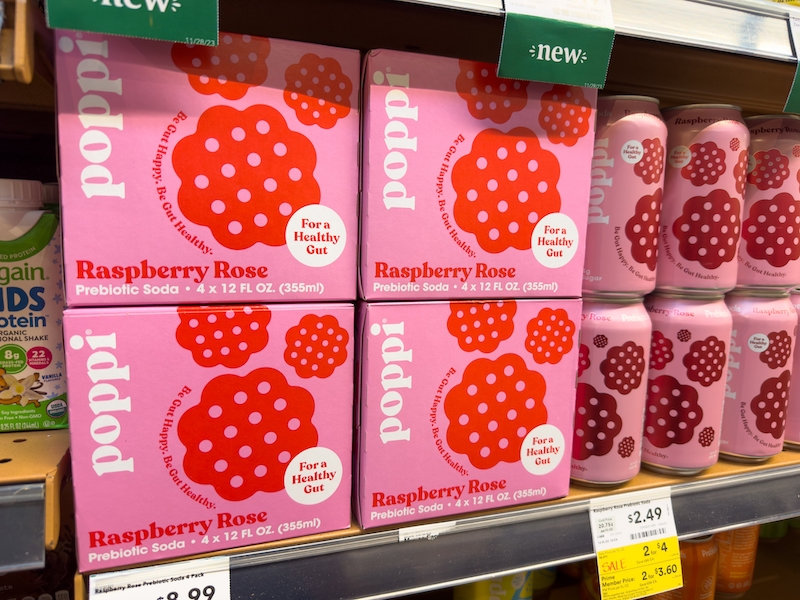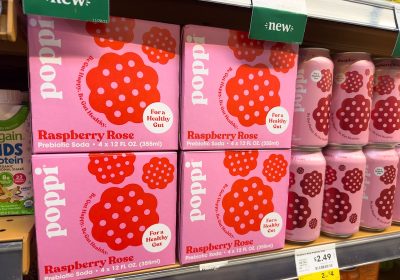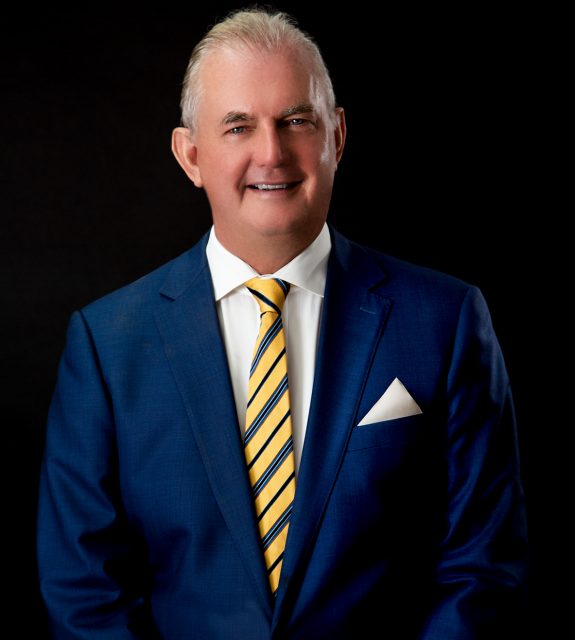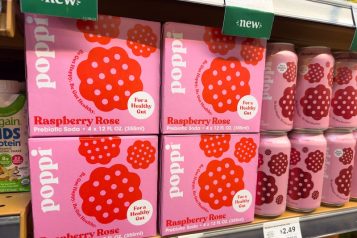
Amidst the rapid expansion of the category with minimal regulation, questions arise over the definition of “gut healthy” products.
Currently embroiled in a class action lawsuit, Poppi faces allegations of misleading claims regarding their drinks’ benefits to gut health—a slogan they have since removed from their website. According to Top Class Actions, plaintiffs argue that Poppi beverages are falsely marketed as beneficial for gut health despite containing minimal prebiotics and excessive sugar. While Poppi declined to comment to Food Dive prior to publication, earlier statements from the company dismissed the lawsuit as baseless and affirmed their intent to vigorously defend against the allegations.
Poppi’s popularity, surpassing $100 million in sales and distributed through over 120 retailers, underscores a growing consumer interest in integrating holistic health into their diets through functional beverages. The market for functional beverages exceeds $13 billion, with segments like kombucha and wellness shots also valued significantly. However, the lawsuit prompts a critical examination: what constitutes a “gut-healthy” product, and when can such claims be appropriately made? The complexities involved highlight the need for clearer regulatory guidelines.
Defining “gut-healthy” involves adherence to FDA labeling requirements and avoiding misleading assertions, particularly in supplement-based products. Dr. Kelly Swanson’s research underscores the importance of adequate prebiotic content, with studies indicating significant variability among products like Poppi, which often fall short of recommended levels. Swanson emphasizes the individualized nature of dietary responses to prebiotics, suggesting that effective dosage can vary widely depending on factors like age, health status, and microbiota composition.
To establish credibility in the prebiotic beverage market, brands should prioritize transparency, scientific backing, and adherence to regulatory standards. Ben Goodwin of OLIPOP highlights their commitment to rigorous testing and certification, emphasizing the efficacy of their prebiotic fiber blend in supporting gut health measures.
Dr. Jenelle Kim advocates for thorough ingredient transparency and third-party testing to bolster consumer trust. Richard Laver, CEO of Lucky Beverage and Kate Farms, underscores the consumer demand for healthier soda alternatives but cautions against over-reliance on singular nutritional claims.
Navigating the intersection of health claims and consumer expectations presents challenges for the industry, requiring careful attention to regulatory compliance and transparent communication with consumers.




















